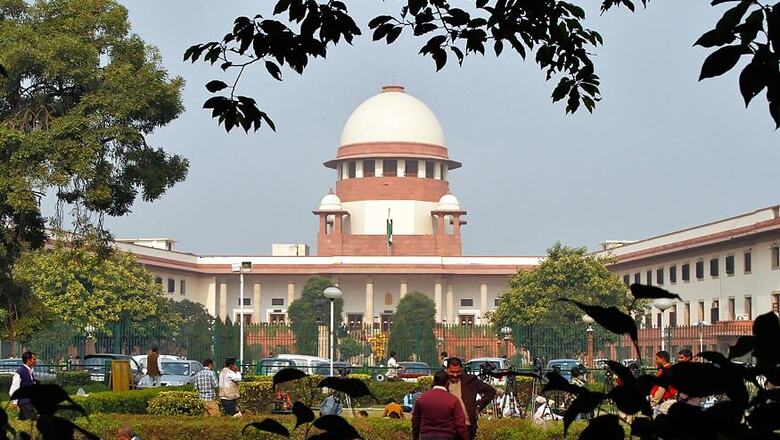
views
New Delhi: Technology can't be a factor in destroying a woman's rights and her choices, the Supreme Court ruled on Tuesday.
Chief Justice of India Dipak Misra and Justice AM Khanwilkar held that the law recognises sanctity of a woman's choice, and therefore, her right to take decisions cannot be curtailed by citing technological inventions.
"The statutory right of a woman cannot be nullified by taking route to technological advancement and destroying her right under a law, more so, when it relates to family matters," the judges said.
They emphasised that "dignity of women is sustained and put on a higher pedestal if her choice is respected". According to the CJI-led bench, honouring a woman's decision is also in consonance with Article 15(3) of the Constitution, which entitles the government to make special provisions for women and children.
The pertinent statements from the Court came as it delivered a verdict on right of a woman to refuse hearing of a matrimonial case through video-conferencing.
By a 2:1 majority, the two judges on the bench held that there cannot be a mandatory direction for trial of matrimonial cases through video-conferencing.
Justices Misra and Khanwilkar, setting aside a two-judge bench verdict on trial of matrimonial cases through video-conferencing, said that such a directive will take away the "inherent sensitivity" required in such cases, especially when the Family Courts Act mandates procedures to ensure "an atmosphere of confidence".
The majority judgment emphasised that the Family Act stipulated that any of the parties to a matrimonial dispute could seek in-camera hearing, and therefore, any court order taking away this right would not be appropriate.
What one party can communicate with other, if they are left alone for sometime, is not possible in video-conferencing and if possible, it is very doubtful whether the emotional bond can be established in a virtual meeting during video-conferencing. Video-conferencing may create a dent in the process of settlement," maintained the bench.
The majority judgment, however, clarified that if both the parties express their willingness, a family court may conduct proceedings through video-conferencing, except in transfer petitions, which is adjudicated only by the apex court.
The third judge on the bench, Justice DY Chandrachud, dissented with this view, saying confidentiality can be maintained even in trial through video-conferencing because such proceedings are not to be shared with anybody.
He added that the Family Act provisions were broad enough to come up with solutions to meet the need of the hour and ensure speedy justice.
Not utilising video-conferencing technology, rued Justice Chandrachud, will render the Family Court helpless to deal with human situations, which merit flexible solutions.
"Worse still, it will enable one spouse to cause interminable delays thereby defeating the purpose for which a specialised court has been set up," according to the dissenting opinion.




















Comments
0 comment